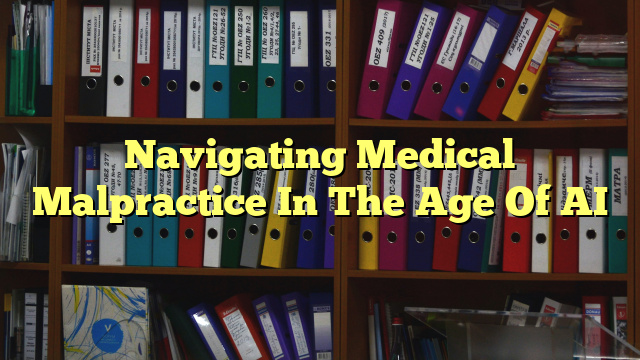
Navigating Medical Malpractice In The Age Of AI
Navigating Medical Malpractice in the Age of AI
Will medical doctors be replaced by AI?
With the rapid advancements in artificial intelligence (AI) technology, there is growing concern about the potential replacement of medical doctors by AI systems. However, while AI can certainly assist and enhance the capabilities of healthcare professionals, it is unlikely to completely replace them.
AI systems can analyze vast amounts of medical data, identify patterns, and make predictions, but they lack the human touch and intuition that doctors possess. Medical practice involves not only diagnosing and treating diseases but also providing emotional support and empathy to patients. These aspects of care cannot be replicated by AI.
Furthermore, medical decision-making often requires complex ethical considerations that AI systems are not equipped to handle. Doctors must weigh the risks and benefits of different treatment options, taking into account the unique circumstances and values of each patient. AI systems, on the other hand, rely on algorithms and predefined rules, which may not always capture the complexity of real-life situations.
Can AI reduce medical errors?
While AI may not replace doctors, it has the potential to significantly reduce medical errors and improve patient outcomes. AI systems can analyze patient data, identify potential risks, and provide decision support to healthcare professionals. They can help detect early signs of diseases, recommend personalized treatment plans, and assist in surgical procedures.
AI can also help streamline administrative tasks, such as medical record keeping and billing, allowing doctors to spend more time with patients. By automating routine tasks, AI systems can free up healthcare professionals to focus on more complex and critical aspects of care.
Why doctors won’t be replaced by AI?
While AI can enhance the capabilities of doctors, it cannot replace the unique skills and qualities that healthcare professionals bring to patient care. Doctors undergo years of rigorous training and education to develop their clinical expertise and judgment. They possess the ability to interpret complex medical information, communicate effectively with patients, and make difficult decisions in uncertain situations.
Moreover, medicine is a constantly evolving field, with new diseases, treatments, and research emerging all the time. Doctors play a crucial role in staying up-to-date with the latest advancements and translating them into clinical practice. AI systems, on the other hand, rely on pre-existing data and algorithms, which may not always reflect the most current knowledge.
What is the dark side of AI in healthcare?
While AI has the potential to revolutionize healthcare, there are also concerns about its dark side. One of the main concerns is the potential for bias in AI algorithms. If the data used to train AI systems is biased, it can lead to discriminatory practices and unequal access to healthcare.
There are also concerns about the privacy and security of patient data. AI systems rely on vast amounts of personal health information, and if not properly protected, this data can be vulnerable to breaches and misuse.
Additionally, there is the risk of overreliance on AI systems, leading to complacency and a decrease in critical thinking skills among healthcare professionals. It is essential to strike a balance between the use of AI technology and the expertise of doctors to ensure the best possible patient care.
